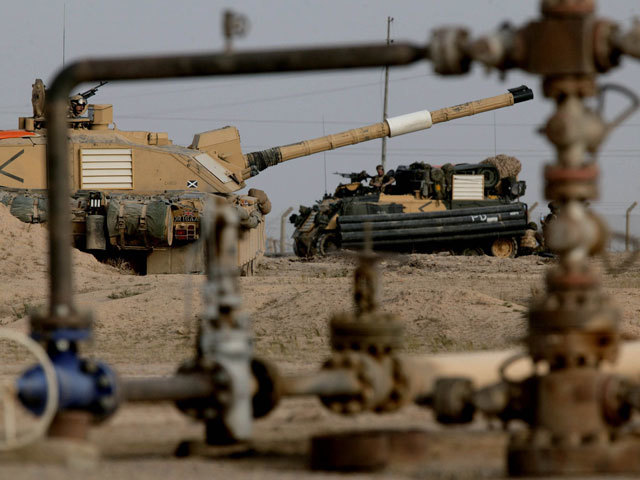
Iraq is now more violent than at any time since the bloody 2006-2007 insurgency period. The country experienced an average of almost 80 violent incidents a day between July and September. Hundreds, possibly even thousands of people are being killed every month and there are no signs that the conflict will rescind in the near future.
As violence continues to rage, the energy sector remains concerned with developments affecting Kurdish Regional Government (KRG) territory, as well as oilfields in the south.
International military assistance has bolstered the position of the Kurds and for now, this will act as a major safeguard for the region’s interests.
However, Islamic State remains intent on attacking the territory. While it will struggle to launch a successful ground incursion into the region, it still has the capability of launching sporadic terrorist attacks.
The quiet, almost surreal calm of the Kurdish cities could still be shattered by terrorist attacks aimed at harming security force morale and undermining public confidence in the authorities, while simultaneously sending a strong signal to the international community. Vigilance is the key word, now more than ever.
While oil continues to flow in the south of the country, the severance of export routes to Jordan and Turkey has slashed national economic growth forecasts from 5.9% expansion to a 2.7% contraction according to the IMF.
The southern region is predominantly Shi’ah and intrinsically opposed to the activities of the Islamic State organisation. Militants will find few sympathisers and little support, making it very difficult to conduct attacks, but violence is still a possibility.
While Shi’ah civilians and religious centres are high on the target list, the energy sector should take note: any group intent on attacking the government will undoubtedly be keen on targeting the sector which provides over 95% of its revenue.
Those doing business in the capital will witness seemingly incessant bombings and a possible return of widespread sectarian killings once again. The city is highly unlikely to fall to Islamic State militants but it will hardly be secure.
Meanwhile, as foreign investors might be monitoring the economic hot zones of the country, anyone intent on solving the problem will get nowhere without the involvement of the people of Anbar province.
The recently appointed defence minister hails from Mosul, the northern city of over a million people that fell to Islamic State militants in June, but it is Anbar province that should be treated as the bellwether of the situation.
This part of the country has represented the Sunni heartland of Iraq for centuries and the opinion of its tribal figures will reverberate throughout the rest of the country. If public opinion can be regained here, there will be a strong chance of it being maintained in many parts of the country.
However, earning back public support in Anbar province will take extensive trust-building exercises.
Tangible wealth redistribution from the energy sector and the reconstruction of infrastructure, healthcare systems and educational facilities will need to take place, but this will require stabilisation of the security environment and the forced removal of Islamic State militants from the area.
Such a military operation will only be successful if local tribal chiefs are provided extensive protection by the security forces, but this will be near impossible to achieve, not least given the long-standing mistrust between the Sunni chiefs and the predominantly Shi’ah police and army.
As the situation progresses it may increasingly appear that the only viable option is the redeployment of international troops to the area, if nothing else to protect the Sunni community from both militancy and potential sectarian discrimination from the security forces.
The implications of such a deployment would be huge, not least for the electorates of countries involved in any such deployment.
Finally, Iraq and its people do not sit in a vacuum. The situation cannot be solved on a national level alone. Even with long-lasting improvement in the capabilities of the Iraqi security forces and other state institutions, the instability will only be solved in the long-term with greater regional co-operation and consensus.
A peace settlement in neighbouring Syria will be crucial, but any such solution will involve massive regional change, institutional development, astronomical diplomacy and meaningful community development, none of which will be easy to attain.
John Drake is the head of Global intAKE, the intelligence and risk mitigation service of AKE Group
Recommended for you
